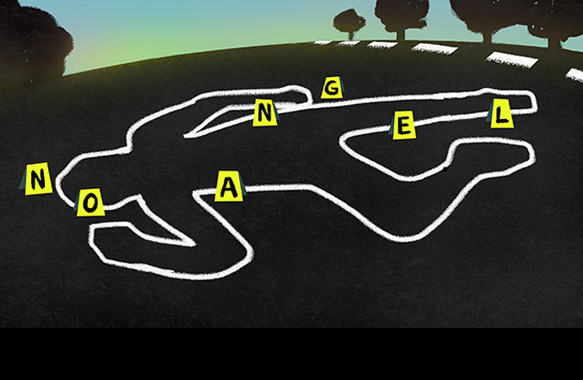When All the Angels Are White
I am an angel in this nation.
And I suspect the New York Times or Fox News would remember me as an angel if I am murdered in the middle of the road by a police officer in California, Florida, Missouri or Washington. Of course, I don’t worry much about being shot by a police officer. I have the ultimate get-out-jail-free card, the most powerful form of protection: whiteness.
I have no reason to believe that I will be written off as a disrespectful punk, a “thug,” a “troubled kid” looking for fights. I will be seen as just another white boy figuring out the world.
I stole a lot as a kid. That will not matter. I fought a lot. That will not matter. I punched holes in doors, and drank throughout high school. On the football field, I was known as “an enforcer,” a term reserved for the white athletes in my division who bullied and wreaked havoc. None of that will ever be counted against me.
I’d like to challenge the national racial logic that contributes to all too deaths, that sanctions and rationalizes the almost daily killing of black youth. I’d like to really question how this nation constructs and ultimately forgives its angels. Why are we angels always white?
In what has become a predicable playbook, Michael Brown’s death resulted in a public trial and conviction of the victim. The police and much of the media and the public engaged at what has become the ultimate two-step: first denying racism, only to quickly deny Brown’s innocence but implicate and convict him in his own death. In the words of John Eligon of The New York Times, Brown was “no angel.”
Michael Brown, 18, due to be buried on Monday, was no angel, with public records and interviews with friends and family revealing both problems and promise in his young life. Shortly before his encounter with Officer Wilson, the police say he was caught on a security camera stealing a box of cigars, pushing the clerk of a convenience store into a display case. He lived in a community that had rough patches, and he dabbled in drugs and alcohol. He had taken to rapping in recent months, producing lyrics that were by turns contemplative and vulgar. He got into at least one scuffle with a neighbor.
Not done, Eligon painted Brown as a “handful,” a child who spent a lifetime wreaking havoc, defying empathyeducates – When All the Angels Are White:

